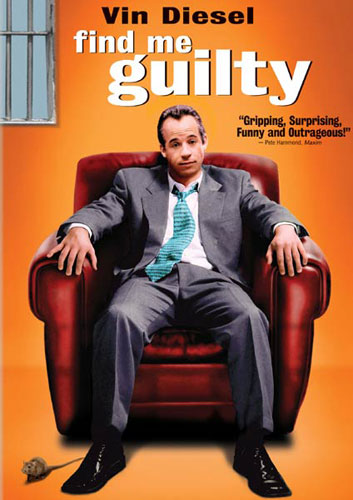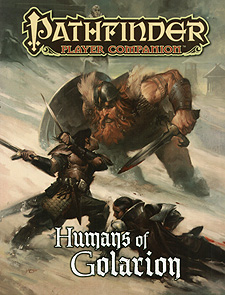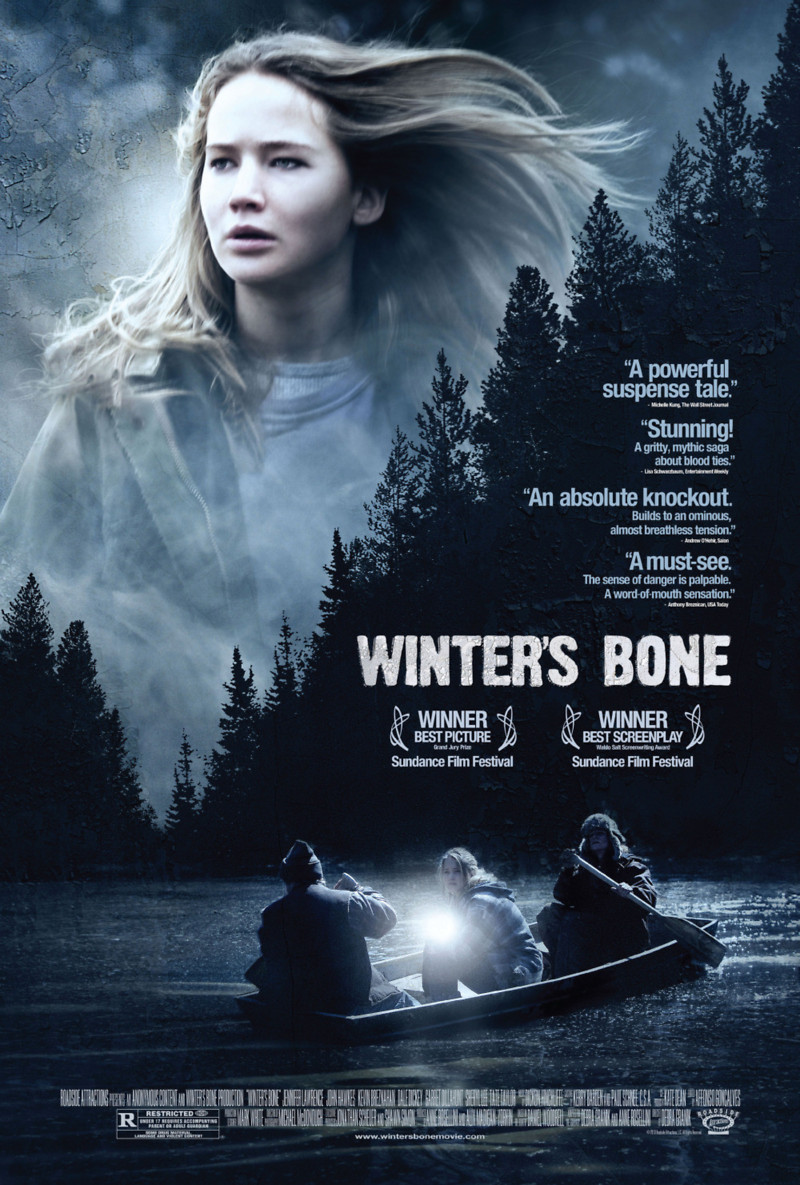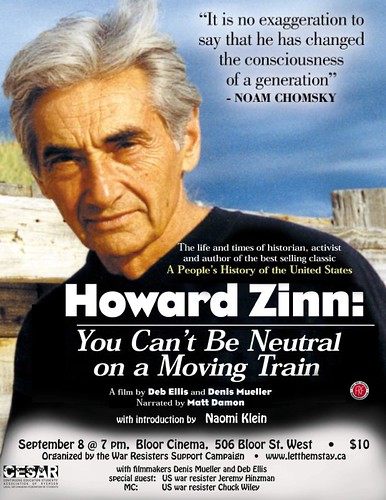I think I wrote this in 1997 (I didn't make any notes as to when, but it was around the same time I was writing
Dreamers). Very self-indulgent, but it is
kind of finished (I do enjoy how vicious it is towards some intellectual pretensions I harbored at the time). And, as always, always interested in any feedback from people who finish reading it (it is about five real pages in length) – for example,
maybe not rely on 'friend' so heavily.
Dialogue (Love is a Beautiful Thing)
"I haven't seen you in four years and I don't even rate a hello?"
"As I recall, you're the one who had her best friend throw me out of your life. I just assumed that things haven't changed since then."
"If they haven't...I thought, I was told that you weren't too happy to be thrown out. So, if things haven't changed, shouldn't you be
glad I'm here, speaking to you again?"
"No."
"But you just said—"
"I'm well aware of that. Look, for however long it's been since we last saw each other, we haven't been on speaking terms. I grew comfortable with that. You and I aren't on speaking terms, and that was what hadn't changed."
"You're talking to me now."
"Well, it would be pretty rude not to, wouldn't it? I'm sort of screwed here. I have to try to handle this with the right amount of maturity and tact. I know it's impossible to do, but I have to try. So, to make you happy, 'hello'."
"Gee, thanks. That made me oh-so happy."
"What do you want from me?'
"Don't you dare!"
"What?"
"I asked you that before. —"
"No, what you asked was, 'what do you want?'."
"It's the same thing."
"I don't see that. I really don't."
"I thought we were friends."
"Oh yes. I forgot, but you're right. We were friends. We were all friends. I'm not the one who got it into her head that I was trying to bed you. Rumor has it that it wasn't you either. But it became a belief you claimed. That is what your question was all about, wasn't it? Did I want to sleep with you?"
"I already know that answer."
"Good. I never answered it, myself."
"Bullshit, —"
"He was my friend! You have no idea what a betrayal like that feels like. The second I knew he had a thing for you, I would have to put all desires aside. That's friendship. That's loyalty."
"That is what you want me to believe?"
"We were friends. Why is it so hard for either of you to believe? I don't know why I wanted either of you as friends, in retrospect, but I honored the friendship. I didn't betray. I did everything I could to make sure I didn't, but sometimes it's easier to think that I was out for only me, I guess. Because of the situation, that was a luxury I couldn't afford."
"I forgot, you're completely selfless."
"Just walk away. I didn't come here to fight."
"Neither did I. I came here to have a good time and enjoy a night out. Then I saw you and I thought it would be nice if we could be civil to one another. You know, for it being so long, and for you not having
a thing for me, you sure have a bad attitude about all of this. Guess it was easy to put it behind you. Just a couple of friends."
". . ."
"No? Talk to me. If you had absolutely no sexual interest in me, then it shouldn't be hard to put the friendship back together."
"You've changed. I've changed. I see no reason for us to be friends. Not now."
"But there was then? Tell me it wasn't about sex."
"It was never about sex."
"It couldn't have been about love. As I recall, you don't give any weight to the idea of love."
"Not romantic love, no. I still don't."
"Because you've never been in love? You've told yourself you never have. You've felt it and ignored it. How sad."
"No, I just know it doesn't exist."
"You're wrong. Love is the most beautiful thing in the world. Don't walk away from me. I'm telling you, if you allowed yourself to love, you would understand more about people. You'd be happier."
"You're wrong."
"About?"
"Love. Love isn't a beautiful thing. Love is forever. It's supernatural and all-powerful, but it is hardly a beautiful thing."
"At least you're lecturing me about love again."
"We have this discussion one last time, and then you leave me alone. For good."
"I still say love is beautiful."
"What is love?"
"This again? What was the one kind of love you allowed for?"
"Familial."
"And that was why people got married, right?"
"Sociologists would disagree, but that is part of the reason."
"And..."
"What?"
"Okay, if love is forever, how can it exist, even in families?"
"You were almost a mother, and if you had gone through with it, you'd know. There is a strange bond about a family, a sense of needing to protect and be near something that is partially like you, genetically. It's an odd sense, and its strongest amongst the most direct connections. First to siblings, then to parents. When children of your own are introduced, that completes the bond with your mate, making the connection real. Up until that time, all you had was marriage to say that your mate was part of your family. That is how you say you love somebody."
"I forgot how utterly depressing your view of the world is, but it does seem to have gotten more
clinical."
"That would be the studying and education. However, to get back on the subject, the above being true, for I have yet to find anyone willing to dispute it as false, that the family is the not the source of love, it is impossible to love outside the family. One can lust, or like, or tolerate as they may, but one cannot love outside the family."
"So I take it you give incest a big thumbs up."
"No, but I'll ask you a question I ask everybody. If you and your brother were only one year apart, and he was handsome and sexy – your ideal man –would you sleep with him, given that there is no chance that he will get you pregnant?"
"No!"
"Why not? You do love your brother, and you sleep with the men you love, don't you? The incest taboo exists to prevent inbreeding, and since you won't be impregnated, that really isn't an issue, is it? So, why wouldn't you?"
"He's my brother!"
"I know. That was one of the pre-existing conditions."
"I just wouldn't. Would you sleep with your sister?"
"I don't have a sister to sleep with."
"You don't sleep with your brothers and sisters, or your parents. God, it's just sick."
"To have sex with the people you love?"
"They're family—"
"But you love your brother, right?"
"Of course I do."
"And you claim to love the men you sleep with."
"So I don't love them because I sleep with them? Then you and I must be
madly in love, because we never had sex. Is that where you're going with this?"
"No, not at all. I'm just saying love is not a beautiful thing."
"And that I don't love the men that I sleep with."
"Probably not, but you have to answer that for yourself. Now, we are agreed that you love your brother, are we not?"
"Yes."
"But you don't have any sexual desires towards him. However, you have been angry at him before, haven't you?"
"It didn't cause me to want to sleep with him."
"You may have even hated him for a short while, but you never stopped loving him."
"Of course not, he's my brother."
"So your love for him, for all your family, is independent from how you feel about them. It is a love that exists because you are family."
"If you say so."
"You don't agree?"
"No."
"But it isn't an argument wholly without merit, is it?"
"No."
"It's the argument of why is all-powerful and forever. You don't love him because he is your brother, he is truly your brother because you love him. Ever since he has been your brother you have loved him and until he is no longer, you will not stop."
"So you've taken a few philosophy classes."
"A few."
"But I can love whomever I choose, can't I? That is the other half of the argument, isn't it?"
"Isn't what?"
"That 'friends are the family you choose'?"
"That's part of it, though I feel you're going to pervert it."
"So you and I were friends, which means we were family to one another, which means we
loved one another. Then, if love is forever, we still have to be friends."
"No, friends come and go. I'm sure you've noticed that."
"Then what am I missing?"
"That you and he decided that both of you were no longer friends to me. That is the violation of the contract, such as it were, and thus being violated, means we never were friends. Not true friends."
"Good, another definition."
"In being true friends lies the beauty."
"So we can't be friends again? Not even just regular friends?"
"Don't you see that as a waste of time?"
"No. I have lots of friends. Don't you?"
"No. Just my brother and Cervantés, Carp and little Carp, Tep, and the Jew. It's a small list, but they're my family. There is love there, and that's about it. We don't have common interests, or hobbies, or work in similar fields. We're a family we put together, though not all are family to each other. But in it there is both love and beauty."
"So there was not an ounce of beauty in our friendship?"
"I wish there had been."
"So, since we weren't going to sleep with one another, and we've tried this before, why can't we just be friends again? What constitutes the beauty?"
"What is a beautiful thing?"
"I don't believe you."
"Answer the question."
"
Trust. He had every reason to think you were trying to sleep with me."
"Yes, you told him I was, and was that before or after I turned one of your suggestions down?"
"Anyone else and even you would agree he was right in doing what he did."
"Maybe. But it was me, and all he had to do was trust. All you had to do was trust. But seeing as how both of you were cheating on each other, I can understand why that would be hard. Tell me, did you love the guys you slept with while he was at his school and you at yours?"
"No."
"Did he love the girls he slept with?"
"No."
"So neither of you loves the people you have sex with. That was easy."
"We love each other."
"
No you don't. You don't even trust one another. I'm not saying you wouldn't marry him and bear him some children. Even with all that, I don't think you could love him. There is no trust as to how long he would be your husband."
"So unlike you."
"I wouldn't marry you, out of deference to him."
"Why?"
"Because as his friend, he would have to trust that I wouldn't. As his friend, I would have to be supportive without personal motive. More of a selfless act than a loving act, but because he trusts I cannot betray that trust."
"But he didn't trust."
"Doesn't matter. Not really. I can't hope that he will. I have to do what the friendship obliges me to do. If he doesn't trust me, he'll see I didn't betray him. Unless he was lied to by someone he thought he could trust, or just believe."
"You would have slept with me if you could have."
"But don't you see that is a hypothetical that can never be answered, because I never could allow myself to even think about such a betrayal of trust. He had nothing to fear from me, and I think that would have been fine with him. You had nothing to gain, and maybe that was the problem."
"So now I wanted to sleep with you? I'm not the one who stood outside
your bedroom window at two in the morning just looking at it. I'm not the one who wrote a series of demented letters to the other, who followed the other to church. You chased me."
"We were friends."
"You wanted to sleep with me."
"It might have appeared that way, but I never asked, did I? I never hinted at it, or made any move or maneuver to get you to sleep with me. I stopped my efforts at getting a friend."
"I still say you wanted to sleep with me."
"Did you ever ask me to sleep with you?"
"No."
"To spend the night together in a bed in your dorm room in a hot and sweaty manner?"
"Yes."
"Weren't you asking me if I wanted to and would be willing to have sex with you with that question?"
"Yes."
"I said no, didn't I?"
"Yes, you—no, no you didn't. That was why I asked you what you wanted, because you said that even if you did, you still wouldn't get what you really wanted."
"You have quite a memory on you."
"It was an important night."
"For both of us."
"So answer the question."
"I can't. It will incriminate me. My answer would give cause for me not to be trusted."
"So stop your crying over all that happened."
"Why? You never had evidence that I wanted more than a friendship. Did I want to sleep with you? I couldn't, even if I wanted to, so the fact that I didn't 'want to' want to sleep with you should be enough. Had I been able to, maybe I would have wanted to be able to want to sleep with you."
"That doesn't answer my question."
"What question?"
"What do you want?"
"How did we get to this? I thought after the discussion of love you were going to leave."
"But the answer is
love, isn't it? You're all hurt that you loved me but you didn't think I loved you. Of course I loved you, but you wouldn't do anything about it because you
thought you were being noble."
"Ethical, not noble."
"What was the answer?"
"It wasn't love."
"Then what was it? Are you just stalling for time or are you that scared to answer? That's why you didn't sleep with me, isn't it, that you were scared? It's still the same thing."
"It's a two word answer."
"Then spit it out."
"A lifetime."
"A lifetime? Of what, for what? Not a lifetime of love?"
"No, just a lifetime."
"For what, then?"
"A lifetime for beautiful things."


















